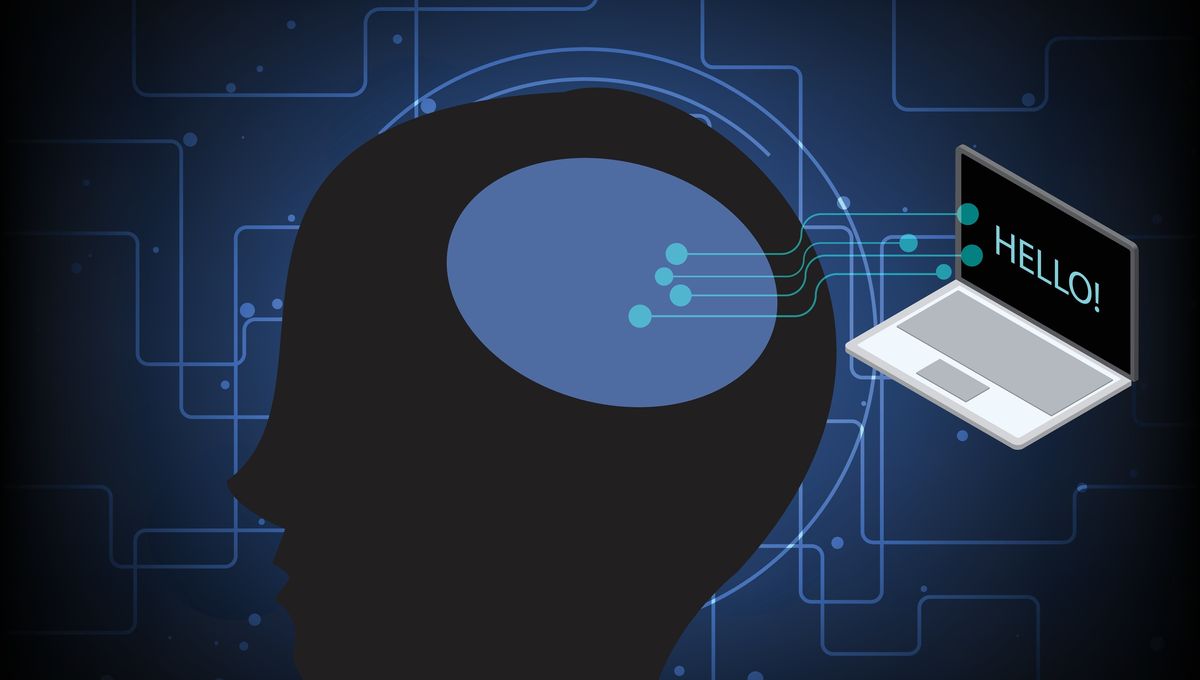
A device designed to allow patients with speech paralysis to silently spell out messages is the subject of a new study. While it has so far only been tested in one person, it could pave the way for future approaches that may be life-changing for people experiencing communication difficulties due to paralysis.
The loss of ability to communicate through speech is known as “anarthria”. This can be caused by of a number of neurological diseases, such as amyotrophic lateral sclerosis (ALS) or a brain injury. Anarthria has a huge impact on patients’ quality of life; they can struggle to communicate with caregivers, family, and friends, and may also have limb paralysis that stops them from using assistive devices. Therefore, there is a clear need to develop new technological approaches in this area.
Devices that seek to replace lost functions of the nervous system are broadly defined as “neuroprostheses”. The participant in this study was a 36-year-old man who currently uses a neuroprosthesis controlled by small movements of his head to allow him to communicate. He developed anarthria and severe muscle weakness in all four limbs after a brain stem stroke.
Instead of relying on head movements, the new device used implanted electrodes hooked up to a computer to form a brain-computer interface (BCI). This worked to decipher his brain signals and display the words he was trying to say on a screen.
BCIs themselves are not new – they have previously been used successfully to allow a paralyzed man to type words by imagining that he was hand-writing them. Similar approaches have also been used to allow patients to move paralyzed limbs. The team behind the new study has even used this technology in the past with the same participant, decoding speech when he was attempting to vocalize out loud. However, since attempting to speak aloud is not comfortable or possible for all paralysis patients, they now sought to investigate whether silent attempts to speak could be used to control a communication BCI.
The deep-learning algorithm used in the BCI was trained to decipher single letters of the English alphabet when the participant silently attempted to say the corresponding word from the NATO phonetic alphabet. For example, to spell out “IFLS”, the participant would have had to “say” India/Foxtrot/Lima/Sierra. To signal that he had finished spelling his message, the participant was asked to try to squeeze his right hand.
Video Credit: UCSF
Using a 1,152-word vocabulary, the device could produce sentences at a speed of 29.4 characters per minute, with an average error rate of 6.13 percent. When this was expanded in further experiments to include a larger vocabulary of over 9,000 words, the error rate was 8.23 percent.
The authors stress that further work is needed to try to reproduce this approach in more participants. However, they are optimistic about where these results could lead, stating that “future communication neuroprostheses could enable users with severe paralysis and anarthria to control assistive technology and personal devices using naturalistic silent-speech attempts to generate intended messages”.
Research into BCIs is progressing in all sorts of areas (even Elon Musk is getting in on the act). For patients with anarthria, exploration of these new technologies could be the key to giving them back their voice.
The study is published in Nature Communications.
Source Link: Paralyzed Man Silently Spells Out Sentences Using New Brain-Computer Interface